Who are we… and what do we do?
Abacus provides independent advice with a practical, hands-on approach to integrated farm management and agronomy for organic and low input agriculture. Our services focus on profitable and sustainable farming systems that follow best practice commercial principles for business, soils and the environment.
Our regional team of consultants combine local knowledge with a wide range of technical expertise covering many aspects of livestock and crop production, policy and regulation. Our clients include farmers, growers, processors, retailers large and small across the supply chain in the UK and internationally.
Tailored for you…
Our farm consultancy services are tailor made to your business with key areas of expertise summarised in these easy to navigate panels. If you can't find what you're looking for please get in touch…
Please call our farm advice team on the local rate number:
0844 800 0091 or
send an email to:
advice@abacusagri.com
Climate Farm Demo project launches in the UK
A network of 130 Climate Demo Farms will be established in the UK, which will be coordinated by IfA, in collaboration with ADAS and Abacus.
This is part of a Horizon European project, which will establish a network of 1,500 demo farms over 27 countries. The project will run over the course of seven years, and will include the regular facilitation of knowledge exchange activities on each farm involved. The UK part of the project is being funded by UKRI.
Farmers can get involved by becoming a Climate Demonstration Farm, or by attending demonstration days at farms in their region to see and hear about how different farms are climate proofing their businesses.

Becoming a demonstration farm in the Climate Farm Demo project offers the opportunity to:
- Receive free and personlised support from a dedicated advisor for six years on climate mitigation and adaptation.
- Improve technical aspects of your farm management, such as herd management, crops, manure management
- Improve your farm efficiency, reduce operational costs, and reduce climate impact
- Be informed about funding opportunities and carbon-rewarding mechanisms
- Access applicable methods and tools for climate-smart practices
- Receive the latest research results and practical solutions relevant to your region
- Participate in a six-year peer-to-peer knowledge exchange programme with UK and European farmers
If you are interested in becoming a demonstration farm in the Climate Farm Demo network, then please contact advice@abacusagri.com.
Current Market Data
For full and accurate information on farming market data, please visit the Farmers Weekly website.
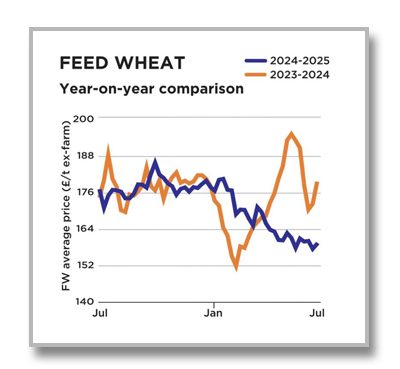
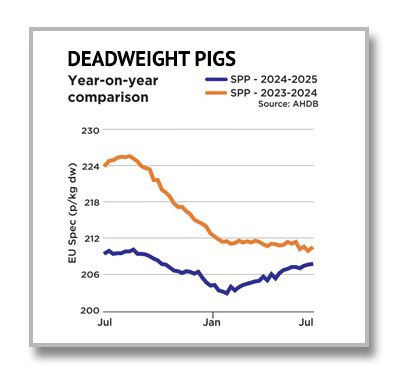
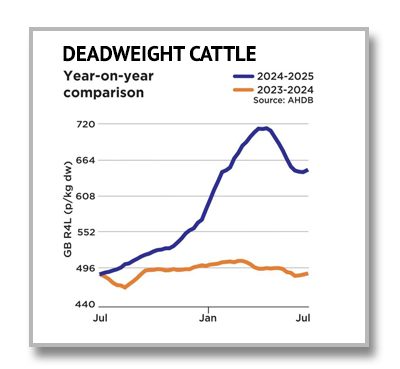
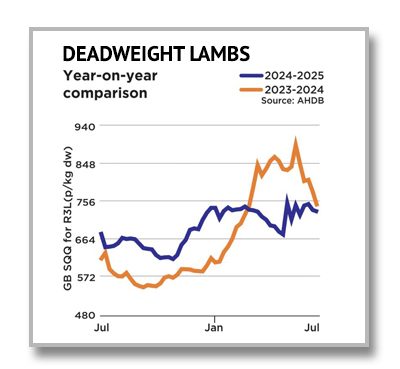
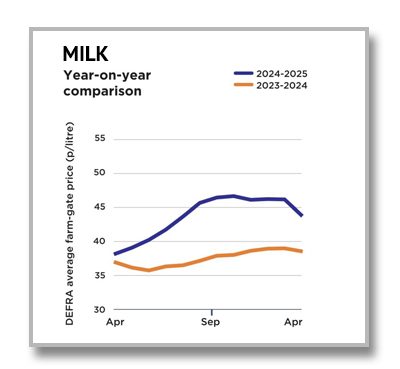
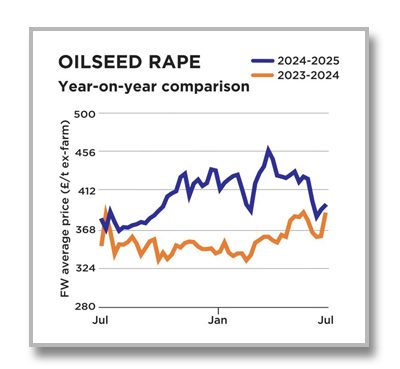
Farming Calendar
Things that rural grant claimants should (and shouldn't) do throughout the year:
- 16 Jan – For any land located in a Nitrate Vulnerable Zone (NVZ), this is the date from which you can apply manufactured nitrogen fertilisers to grassland and tillage land if conditions are suitable. This is subject to compliance with the Farming Rules for Water and there is agronomic justification. (NVZ Guidance)
- 1 Jan – For any land located in a Nitrate Vulnerable Zone (NVZ), from this date you can apply organic manure with a high, readily available nitrogen content (for example, slurry, poultry manures or liquid digested sewage sludge) to grassland and tillage land on shallow or sandy soils if conditions are suitable and you adhere to the quantity restrictions for applying these manures. This is also subject to compliance with the Farming Rules for Water and there is agronomic justification. (NVZ Guidance)
- 1 Jan – For any land located in an NVZ, this is the beginning of the year for assessing the annual amount of livestock manure applied to your land. (NVZ Guidance)
- 1 Feb – You can apply organic manure with a high readily available nitrogen content (for example, slurry, poultry manures or liquid digested sewage sludge) to grassland and tillage land on all soil types from this date if conditions are suitable and you adhere to the quantity restrictions for application of these manures. (SMR 1)
- 28 Feb – End of the quantity restrictions for application of organic manures with a high readily available nitrogen content. (SMR1).
- 1 Mar – You must not cut or trim hedges or trees from this date, but you can carry out hedge and tree coppicing and hedge laying from 1 March until 30 April. Fruit and nut trees in orchards, or trees acting as windbreaks in orchards, vineyards, hop yards or hop gardens are not included in the ban.(GAEC 7a and 7c)
- 31 Mar – If you hold a water abstraction licence, expect to receive your annual bill (or first part charge if you hold a two-part tariff agreement) for the forthcoming financial year. (GAEC 2)
- 1 Apr – You must not burn heather, rough grass, bracken, gorse or vaccinium on land, other than in upland areas, from this date. (GAEC 6)
- 1 Apr – If you hold a winter or all year round water abstraction licence (authorising abstraction outside the period April to October), the Environment Agency will make actual abstraction return forms available to you from 1 April. You then have 28 days to send your readings to the Environment Agency. (GAEC 2)
- 16 Apr – You must not burn heather, rough grass, bracken, gorse or vaccinium in upland areas from this date. (GAEC 6)
- 30 Apr – You must have recorded the number of 'specified' livestock kept on your farm during the previous calendar year and calculated the amount of nitrogen they produced. You must also record the number and type of livestock in a building or hardstanding during the previous storage period. (SMR1)
- 1 May – You must not carry out hedge or tree coppicing or hedge laying from this date. (GAEC7a and 7c).
- 1 Aug – If you have been granted a derogation by RPA, you may be able to cut or trim hedges throughout August, to sow oilseed rape or temporary grassland. (GAEC 7a)
- 1 Aug – Start of closed period for applying organic manure with a high readily available nitrogen content (for example, slurry, poultry manures or liquid digested sewage sludge) to tillage land on shallow or sandy soils except where crops will be sown on or before 15 September. (SMR 1).
- 1 Sep – You can cut or trim hedges and trees from this date. (GAEC 7a and 7c)
- 1 Sep – Start of closed period for applying organic manure with a high readily available nitrogen content (for example, slurry, poultry manures or liquid digested sewage sludge) to grassland on shallow or sandy soils. (SMR 1)
- 1 Sep – Start of closed period for applying manufactured nitrogen fertilisers to tillage land. (SMR 1)
- 15 Sep – Start of closed period for applying manufactured nitrogen fertilisers to grassland. (SMR 1)
- 16 Sep – Start of closed period for applying organic manure with a high readily available nitrogen content (for example, slurry, poultry manures or liquid digested sewage sludge) to tillage land on shallow or sandy soils which have been sown with crops on or before 15 September. (SMR 1).
- 1 Oct – You can burn heather, rough grass, bracken, gorse or vaccinium on land in upland areas from this date. (GAEC 6)
- 1 Oct – Start of closed period for applying organic manure with a high readily available nitrogen content (for example, slurry, poultry manures or liquid digested sewage sludge) to tillage land on soils which are not shallow or sandy. (SMR 1)
- 15 Oct – Start of closed period for applying organic manure with a high readily available nitrogen content (for example, slurry, poultry manures or liquid digested sewage sludge) to grassland on soils which are not shallow or sandy. (SMR 1)
- 31 Oct – If you hold a summer water abstraction licence (authorising abstraction wholly within the months of April to October), the Environment Agency will make actual abstraction return forms available to you from 31 October. You then have 28 days to send your readings to the Environment Agency. (GAEC 2).
- 1 Nov – You can burn heather, rough grass, bracken, gorse or vaccinium on land, other than in upland areas, from this date. (GAEC 6).
- 30 Nov – If you have a two-part tariff agreement for your water abstraction licence, expect to receive your second part charge after 30 November. (GAEC 2).
- 1 Dec – You need to carry out your annual inventory of sheep and goats. (SMR 8)












